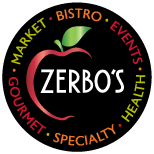BY DEBBIE DRECKSEL
I eat a predominantly plant-based diet, although I don’t think of myself as a vegan or vegetarian. I simply prefer eating nutritious, easy-to-digest, whole foods over anything else. I do have plenty of friends, however, who are vegans and vegetarians, and they are much more passionate about completely abstaining from animal products—even in non-food items.
No matter what your food preferences, there are certain nutrients that your body requires and that you need to get from your diet. Omega-3 and omega-6 essential fatty acids (EFAs) are a good example. These fats are not optional, as your body does not make them. But they are necessary for how your body is structured and how it functions.*
Perhaps more than any other nutrient, omega-3 fatty acids have the capacity to affect the very essence of who we are. These fats make up our cell membranes and are needed for proper nutrition and health.* Docosahexaenoic acid (DHA), for example, is a structural fat that is highly concentrated in our brain and eyes. Eicosapentaenoic acid (EPA) is a functional fat that is important for supporting the brain’s blood supply, as well as healthy moods.*
The omega-3 fatty acid most prevalent in vegan and vegetarian diets is alpha-linolenic acid (ALA). It’s the fat found in flax and chia seeds, walnuts, and leafy greens. The omega-3 fatty acids DHA and EPA are found primarily in fatty fish and marine algae. Both plant-
based ALA and marine-based DHA and EPA are essential to our health. And according to the National Institute of Health, all Americans could benefit from higher intakes.
As an educator, I always recommend getting these essential fats from a variety of sources. But for my vegan and vegetarian friends who don’t eat fish, this becomes much more complicated.
PLANT-BASED OMEGA-3S
When it comes to omega-3s, the important, often missing, information for those with plant-based diets is that ALA is devoid of preformed DHA. This means that, as a vegan or vegetarian, you must rely on your body’s own conversion of ALA to DHA—a process that has been shown to be ineffective in some people.
There are also lifestyle factors that can further inhibit, or even block, this conversion process. These lifestyle factors include diets high in omega-6 fatty acids (as well as diets high in saturated fats or trans fats); excessive amounts of stress; and excessive alcohol consumption. Alcohol blocks the enzymes needed to form DHA and also appears to dissolve fatty acids within the brain’s neuronal membrane.
Conversely, getting adequate amounts of vitamins B3, B6, A, C, E, and the mineral zinc can help optimize the conversion of ALA to EPA and DHA. Magnesium, too, is an important co-factor in the omega-3 metabolic cycle for making DHA. But avoiding metabolic hurdles associated with converting ALA to EPA and DHA means getting these essential fats from a direct dietary source.
GETTING TO THE SOURCE
Omega-3 DHA and EPA are actually derived from microalgae, which is where fish get it in nature. Algae is the perfect plant-based omega-3. Yet algae can be difficult to come by in vegan and vegetarian diets, so I always recommend supplementing with a quality algal oil.
Not everyone needs to consume exactly the same balance of fatty acids, but it’s generally advised to consume about 30% of our total calories as fat. There is no established Dietary Reference Intake (DRI) for omega-3 EPA and DHA. However, many health professionals recommend 250 mg to 1,000 mg per day to maintain optimal health. The American Heart Association suggests that individuals with established heart concerns consider higher daily intakes—1,000 mg to 4,000 mg EPA+DHA daily.
It’s important to consume as many whole foods as possible, as processed foods typically have an overload of omega-6 fatty acids. In every tissue in our body there is a need for omega-3 and omega-6 balance. We can’t utilize the omega-3s we eat if we have a diet predominant in omega-6 fatty acids.
Derived from marine microalgae, algal oil begins with algae cells, which can be sustainably grown under controlled conditions. Once harvested, the algae are processed to extract algal oil, which is rich in omega-3 DHA.
Most algae supplements on the market are predominantly DHA and offer very little, if any, EPA. But both fats are essential. To stay true to your vegan or vegetarian lifestyle, I suggest shopping for a supplement that offers a sufficient amount of both of these indispensable nutrients.
A BALANCING ACT
While getting your omega-3s from algal oil is important, it’s also important to be conscious of how much omega-6 fats you’re consuming. As people learn about omega-3s and omega-6s, they’re also learning about the necessity of balancing these two families of fatty acids.
Research has shown that vegans and vegetarians tend to be low in omega-3 DHA and EPA. Research has also shown that long-term vegans appear to be relatively deficient in DHA and EPA but that they respond robustly to a relatively low-dose supplementation of algae-sourced omega-3s. These studies further indicate that vegans and vegetarians should reduce their omega-6 to omega-3 dietary ratios for optimal health.
In my education presentations, I find it helpful to draw attention to the fatty acid composition in foods, which quite often astonishes those who rely on obtaining their omega-3s from plant-based diets. A standard avocado, for instance, often a staple food in plant-based diets, has just 221 mg total omega-3 compared to its 3,396 mg total omega-6. Peanut butter is another example. One ounce of “chunky” style peanut butter contains about 4,120 mg total omega-6 but only 23 mg total omega-3. One ounce of walnuts contains 2,542 mg total omega-3 compared to a whopping 10,666 mg total omega-6.
It certainly doesn’t mean one can’t eat these nutritious foods—I eat them nearly every day along with other healthy omega-6 rich foods. But the time to consider supplementing with a direct, dietary marine-based source of omega-3s is long overdue. Especially when these fatty acids are so critical for every life stage.



Comments